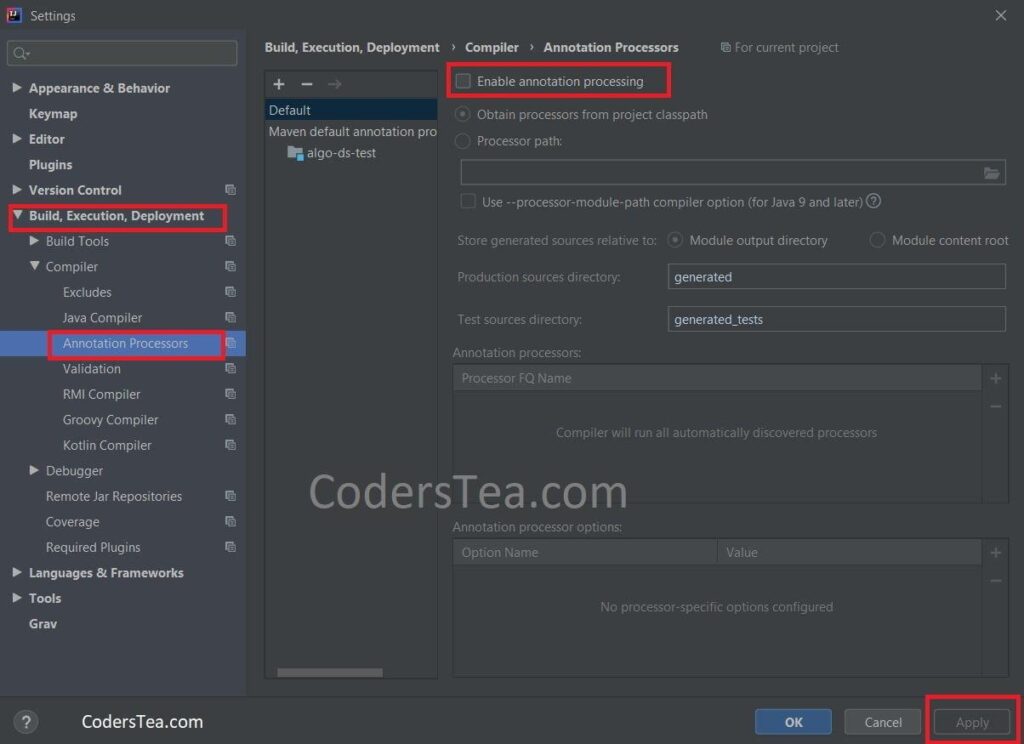

ClassesĪ container class containing all Lombok configuration keys that do not belong to a specific annotation. The Java Lombok package contains the following classes, and annotations. lombok.experimental: The package contains Lombok features that are new or likely to change before committing to long-term support.lombok.extern.*: The packages contain Lombok annotations that are useful to reduce boilerplate issues for libraries.All other packages are only applicable to those who are extending Lombok for their own uses, except the following two packages: The package contains all the annotations and classes required to use Lombok. Provide annotation for checking null values.Also provides delombok utility (adding back all the boilerplate code).By using Lombok the developers becomes more productive.
Intellij lombok code#

While the project Lombok adds all these boilerplate codes at the compile-time in the class file instead of adding these boilerplate code in original source code. When we use IDEs to generate these boilerplate codes (getters and setters), we save ourselves from writing getters and setters manually but it actually exists in the source code that increases the lines of code, and reduces maintainability and readability. The answer is no, IDEs and Lombok do different works but are closely similar to each other. Here, a question arises that does project Lombok and IDEs do the same work? If yes, then what is the use of Lombok? It is automatically plugging into IDEs and build tools to spice up our Java application. Just by using the annotations, we can save space and readability of the source code. The project Lombok is a popular and widely used Java library that is used to minimize or remove the boilerplate code. In this section, we will discuss the project Lombok, features, Lombok package. It is a tool that spices up our Java application. To overcome this drawback, project Lombok comes into existence. The major drawback is to write lots of boilerplate code. The project can now import from the lombok package and use Project Lombok annotations (e.g., lombok.Setter and lombok.Getter).Java is the most popular object-oriented programming language but it has some drawbacks. Optionally, rename lombok to Project Lombok 1.18.8.


Ensure Store generates sources relative to is selected based on the project’s module settings (if Module output directory doesn’t work, come back and try the other setting).Ensure Enable annotation processing is checked.Expand Build, Execution, Deployment 🠖 Compiler 🠖 Annotation Processors.
Intellij lombok download#
Download the JAR file into the project lib directory (e.g., $HOME/dev/java/project/libs).Here is another way to use Project Lombok with IntelliJ IDEA: Preferences… > Build, Execution, Deployment > Compiler > Annotation ProcessorsĪfter enabling, run Build -> Rebuild Project to have annotations recognized and eliminate errors.įor IDEA 2019.2.1, depending on how the project is configured, installing the Project Lombok plugin may not be sufficient. Settings -> Compiler -> Annotation Processors I have fixed it in IDEA 12 by setting check box Enable annotation processing in: Update2: Perhaps it’s not something readers want to hear but I ended up switching to Scala.


 0 kommentar(er)
0 kommentar(er)
